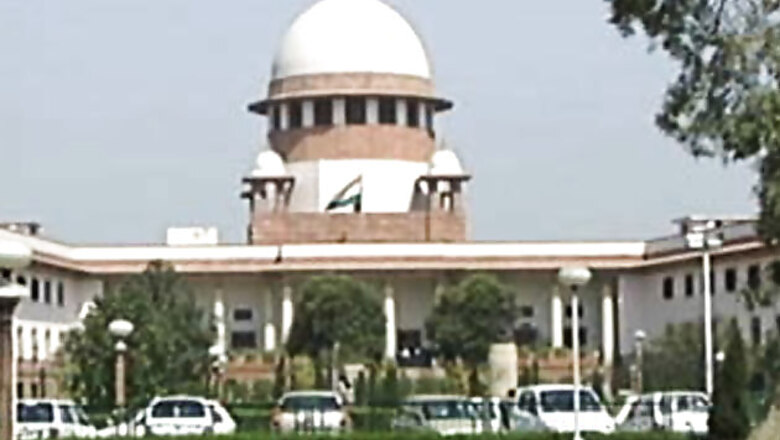
views
New Delhi: The Supreme Court on Tuesday expressed its reservation over Centre's stand on mandatory sanction to investigate senior bureaucrats in all corruption cases, saying such statutory provision would hamper judicial power in court-monitored probe like the Coalgate.
The apex court brushed aside the contention of the Centre that the approval of competent authority for holding inquiry or investigation against officers from the rank of joint secretary level under section 6A of the Delhi Special Police Establishment (DSPE) Act was neccessary as it acts as a "filter" to shield honest officers from harassment.
However, a bench headed by Justice R M Lodha, which reserved its order on the issue, said, "There is no justification in following the route of section 6A when it comes in the way of court-monitored probe".
"If the court-monitored probe is hampered by the statutory provision than the judicial power is also hampered," the bench, also comprising justices Madan B Lokur and Kurian Joseph said while making it clear that the court takes the task of monitoring the investigation "when there is always a lurking doubt that the executive will abuse power".
The bench said the monitoring into the investigation of the coal block allocation scam was undertaken to "restore the larger public interest and confidence of the people into the case of this magnitude".
"Is it not in the interest of the Central Government that as a matter of fact and in the interest of public that high public confidence is maintained in the high profile case like this in which the mandatory requirement of section 6A is dispensed with," the bench told to Attorney General G E Vahanvati.
The AG contended that there should not be any reluctance in hearing the government's view before subjecting a senior bureaucrat to investigation.
The bench said the necessity of monitoring the probe arises when the court feels that investigation will not remain uninfluenced by the executive. The bench expressed its disagreement with the Centre's stand that prior approval was needed even to launch a preliminary inquiry against the officer of the rank of joint secretary.
"Rule of Law may not have complete play and to ensure that there is no obstruction to the flow of rule of law, the court intervenes," it said.
Differing from the Centre, CBI counsel Amarender Sharan said there was no need for approval or sanction of competent authority in quizzing bureaucrats from the rank of joint secretary in a court-monitored probe like the Coalgate.
The agency's view was shared by advocate Prashant Bhushan, appearing for NGO Common Cause and PIL petitioner advocate Manohar Lal Sharma.
While Bhushan said where there is a court-monitored probe, there should not be any impediment in the form of Section 6A, Sharma said with court undertaking the monitoring, the role of government comes to an end.
Vahanvati had said section 6A "has to be complied with until it is struck down by the court".
The AG was responding to two queries put forth by the apex court on July 10 as to why clarification should not be made that sanction from the Government for investigation of the offences alleged to have been committed under the Prevention of Corruption Act is not necessary.
This is since Government has taken the view that the power of supervision for investigation has already been shifted from it to the Central Vigilance Commission (CVC).
Secondly, the court also wanted to know from the AG as to why sanction of the Government is necessary in respect of "court monitored" or "court directed" probes.
Vahanvati said the general power of the CVC is to supervise the functioning of CBI under the DSPE Act and the purpose of section 6A of the Act should not be understood in the manner that it is for throttling the probe.



















Comments
0 comment